Author Robert Fieseler sheds revealing light on Florida’s Johns Committee
First Amendment News 492
The [Johns Committee] persecuted civil rights leaders, university professors, college students, public school teachers and state employees for imagined offenses against redneck sensibilities.... Niceties like due process or the right to counsel, or civil liberties were ignored. . . . [Among other things], they employed entrapment and blackmail.
— Fred Grimm, Sun-Sentinel (02/24/2019)
It’s an old story: The wrongs of the past take refuge in darkness, in stories lost to time, and in truths erased and in books banned. Tyranny (whether waged against political opponents or marginalized groups) fights to conceal its wrongs to ensure eternal ignorance of its actions. In that way, the wrongdoers of the past rely on the wrongdoers of the present to forever hide their misdeeds. By that measure, the truths of the past cannot survive if the powerful are hellbent on burying them and bullying anyone who exposes their lies.
That was certainly true of ruthless Florida officials, then and now. And it reveals how First Amendment rights of freedom of speech and association were abridged with wild abandon. But no matter, the witch hunt was on . . . and with great publicity.
Enter Robert Fieseler, historian and author of a new book titled American Scare: Florida’s Hidden Cold War on Black and Queer Lives. With narrative flair and scholarly credibility (supported by 110 pages of endnotes), Mr. Fieseler shines a revealing light on the inner workings of the Johns Committee (formally known as The Florida Legislative Investigation Committee).
The Johns Committee was a stepchild of the infamous anti-Communist investigative committees of the McCarthy era. In the late 1950s and the 1960s, the Johns Committee (named after Charley Eugene Johns, then a member of the Florida senate) revived the Second Red Scare and the Lavender Scare — both the handiwork of Senator Joseph McCarthy.
The Johns Committee thus undertook a sweeping campaign against allegedly subversive activities by academics, civil rights groups (especially the NAACP), suspected Communist organizations, and homosexuals. Though unfounded, all of these people were portrayed as “enemies of the state.”
Choice quotes from Robert Fieseler
Florida was a place where power played beyond ordinary rules and where some folks got away with anything.
The history they tried to kill has survived.
Perhaps the greatest liberty in any country is the freedom to know one’s country.
Boxes of truth
The revelations in Fieseler’s American Scare are breathtaking, both in amazing detail and horrific abuses of power. While Florida officials (then and now) did their best to cover up the secret files of the Johns Committee, thanks to Bonnie Stark (one of the first Johns Committee scholars), some 20 boxes survived, replete with secret, damning particulars and all.
“Because of the controversial nature of the Johns Committee’s investigations, its official records [were] sealed by the Florida Legislature” and remained so decades later, wrote Stark in her 1985 master’s thesis. As fate would have it, Stark crossed paths with Fieseler many years later and befriended him. She then entrusted her veritable war-room of files to him for use in American Scare, at which point the past reared its head vividly, and the individual stories of the thousands persecuted by the Johns Committee came to light.
Targeting the NAACP: It took a Supreme Court victory
With Columbo-like acumen, Fieseler revived scores of examples of cruel injustices committed against African Americans, such as Florida NAACP member Reverend Theodore Gibson (as in Gibson v. Florida Legislative Investigation Committee).
The irony is that the NAACP has a long history of intense opposition to communism and the Communist Party. Not surprisingly, it took a Supreme Court ruling to vindicate Gibson and the NAACP, who were successfully represented by NAACP Legal Defense lawyer Robert L. Carter.
Writing for the majority, Justice Arthur declared:
To permit legislative inquiry to proceed on less than an adequate foundation would be to sanction unjustified and unwarranted intrusions into the very heart of the constitutional privilege to be secure in associations in legitimate organizations engaged in the exercise of First and Fourteenth Amendment rights.
The ‘Queer Scare’ and ‘The Purple Pamphlet’: Tracking and tormenting gays
In his famous speech to Congress when he claimed he had a list of 205 known Communists employed by the State Department, he singled out two of the cases that had to do with homosexuality. McCarthy theorized that both Communists and homosexuals had “peculiar mental twists” that caused their deviant behavior. This rhetoric kicked off a much longer, destructive, and effective hunt for LGBTQ+ federal employees that’s now known as the Lavender Scare [also known as the “Queer Scare”].
Fieseler also brought to light the malice waged against suspected homosexuals such as Art Copleston (a college student) and William James Neal (a black gay music teacher — see Neal v. Bryant). And then there was Sigismond Diettrich (a renowned authority on Florida geography and department chair at the University of Florida), who found himself on the wrong end of the Committee’s anti-gay purge.
The idea was to humiliate them, to harass them, and to portray them as depraved enemies of the state. The result: terrified citizens, suicide-driven victims, and ruined reputations.
To that end, in 1964 the Committee released a 52-page booklet entitled “Homosexuality and Citizenship in Florida” (replete with purple covers and artwork, hence nicknamed “the Purple Pamphlet”). Little was turned up as to any serious and meaningful threat gays posed to the citizenry of Florida, though the report did garner the desired effect of shaming and terrifying queer people.
The symbolic campaign continues
A symbolic restitution campaign continues to seek official apologies. It marks the sixth consecutive effort since 2019 on the part of Equality Florida and legislative sponsors to get the Florida Legislature to formally acknowledge and apologize for the extralegal actions of the 1950s/1960s Johns Committee.
“In an era of political murk throughout the Sunshine State,” said Robert Fieseler, “it seems that the ideals of truth, peace and justice come dropping slowly, and this apology campaign has become a genuine battle of attrition wherein conservative opponents fail to see the consequences of ignoring the past.”
“We introduce it not with the expectation that it will immediately pass, but with the knowledge that, by introducing it, we will get to talk about it more in the open,” said Equality Florida director Nadine Smith. “Eventually, we will chip away and get to the place where recognition, apology and the commitment to never return to those days will be made public,” she added.
As part of this community action, Fieseler has committed to testifying before the legislature on Florida Legislative Investigation Committee history. “I am determined to get the story of the Johns Committee on the record for as many times, and as many years, as it requires until the state says these simple words: ‘We are sorry.’”
Related
Robert Fieseler, “The Beloved Professor and War Hero Persecuted in a Government Crusade Against Blacks and Gays,” Narratively (Nov. 7)
David K. Johnson, “The Lavender Scare: The Cold War Persecution of Gays and Lesbians in the Federal Government” University of Chicago Press (2023)
Lloyd Dunkelberger, “Lawmaker advances a state apology for the Johns Committee that targeted civil rights leaders and LGBTQ Floridians,” Florida Phoenix (Aug. 2, 2019)
Judith G. Poucher, “The John’s Committee: A Historiographic Essay,” Florida Historical Quarterly (2014)
James A. Schnur, “Closet Crusaders The Johns Committee and Homophobia, 1956-1965,” University of South Florida (2012)
John Howard, “Carryin’ On in the Lesbian and Gay South” NYU Press (1997)
On YouTube
SCOTUS denies review in 1-A case Obergefell damages case
Breanne Deppisch and Anders Hagstrom, “Supreme Court rejects appeal from county clerk who sought to overturn same-sex marriage decision,” Fox News (Nov. 10)
The Supreme Court on Monday said it will not revisit its landmark decision that legalized same-sex marriage nationwide, leaving intact the 2015 protections granted to couples in Obergefell v. Hodges.
The Justices rejected an appeal brought by Kim Davis, a former Kentucky county clerk who was held in contempt after she refused to issue marriage licenses to same-sex couples due to her religious beliefs.
The Court declined to take up her appeal without explanation and without any noted dissents.
Though Davis’s appeal centered largely on First Amendment issues and questions of religious protection, her lawyers also requested that the Supreme Court consider overturning the 5-4 ruling in Obergefell . . . .
Related
Ilya Somin, “Supreme Court Refuses to Hear Case Seeking to Overturn Obergefell,” The Volokh Conspiracy (Nov. 10)
Trump petitions High Court in Jean Carroll defamation case
Abbie VanSickle, “Trump Asks Supreme Court to Overturn Verdict in E. Jean Carroll Case,” The New York Times (Nov. 10)
President Trump asked the Supreme Court on Monday to overturn a $5 million civil judgment that he had sexually abused and defamed the writer E. Jean Carroll.
In the petition, lawyers for Mr. Trump claimed that the assertions against him were “implausible” and “unsubstantiated” and argued that the trial court had erred in a “series of indefensible evidentiary rulings.”
A copy of the petition, which had not yet appeared on the court’s public-facing docket, was reviewed by The New York Times. A spokesman for Mr. Trump’s legal team said the president would continue to fight the case and referred to it as “liberal lawfare.” Lawyers for Ms. Carroll declined to comment.
Mr. Trump’s lawyers had alerted the Supreme Court in late August that the president intended to ask the justices to review the case. He had been granted a filing extension with a deadline of Monday.
FIRE prevails in Pollster class-action case
“VICTORY! Federal district court dismisses class-action suit against pollster J. Ann Selzer,” FIRE (Nov. 6)
This decision shows where petty politics ends and the rule of law begins. The court’s strongly worded opinion confirms that a legal claim cannot be concocted with political slogans and partisan hyperbole, and that there is no hiding from the First Amendment. This is a good day for freedom of speech.
– Robert Corn-Revere (counsel for defendant)
A federal district court today dismissed with prejudice a lawsuit against renowned Iowa pollster J. Ann Selzer, holding that the First Amendment bars the claims against her related to her October 2024 general election poll. As the court explained, “there is no free pass around the First Amendment.”
The lawsuit, brought by a subscriber to The Des Moines Register and styled as a class action, stemmed from a poll Selzer published before the 2024 presidential election that predicted Vice President Kamala Harris leading by three points in Iowa. The suit asserted claims, including under Iowa’s Consumer Fraud Act, alleging that Selzer’s poll, which missed the final result by a wide margin, constituted “fake news” and “fraud.”
Selzer, represented pro bono by FIRE, pushed back. FIRE explained that commentary about a political election is core protected speech. “Fake news” is a political buzzword, not a legal cause of action. And “fraud” is a defined legal concept: intentionally lying to convince someone to part with something of value.
New book on free speech and incitement
Eric T. Kasper and JoAnne Sweeny, eds., “Free Speech and Incitement in the Twenty-First Century,” (SUNY Press, 2025)
Free Speech and Incitement in the Twenty-First Century explores the line between free speech and incitement, which is a form of expression not protected by the First Amendment. Incitement occurs when a person intentionally provokes their audience to engage in illegal or violent action that is likely to, or will, occur imminently. This doctrine evolved from World War I through the Cold War and the civil rights movement era, culminating in a test announced by the US Supreme Court in Brandenburg v. Ohio (1969).
Since the 1970s, this doctrine has remained largely unchanged by the Supreme Court and, as such, has received relatively little academic or media attention. Since the late 2010s, however, violence at political rallies, armed protests around Confederate statues, social unrest associated with demonstrations against police, and an attack on the US Capitol have led to new incitement cases in the lower courts and an opportunity to examine how incitement is defined and applied. Authors from different perspectives in Free Speech and Incitement in the Twenty-First Century help the reader understand the difference between free speech and incitement.
Eric T. Kasper is Professor of Political Science and Director of the Menard Center for Constitutional Studies at the University of Wisconsin-Eau Claire. He is the coauthor of The Supreme Court and the Philosopher: How John Stuart Mill Shaped US Free Speech Protections.
JoAnne Sweeny is a Professor of Law at the Louis D. Brandeis School of Law, University of Louisville. Her primary area of scholarship is the freedom of expression and feminist jurisprudence.
So to Speak podcast: Lukianoff and Strossen on free speech
“Ten arguments against free speech,” FIRE (Oct. 30)
We tackle ten common arguments against free speech. FIRE President and CEO Greg Lukianoff and FIRE Senior Fellow and former ACLU President Nadine Strossen are the co-authors of the new book, “War on Words: 10 Arguments Against Free Speech — And Why They Fail.”
More in the news
“Cornell University Announces Deal With Trump Administration To Restore Withheld Federal Funding,” First Amendment Watch (Nov. 10)
Quinta Jurecic, “The Third Red Scare,” The Atlantic (Nov. 10)
BrieAnna J. Frank, “He got cuffed after playing the ‘Imperial March’ at National Guard. Now, he’s suing,” USA Today (Nov. 10)
Eugene Volokh, “Crime in Illinois to Send E-Mails (with Intent to Offend) That Are ‘Disgusting to the Senses’ or ‘Abhorrent to Morality or Virtue’,” The Volokh Conspiracy (Nov. 10)
CalMatters, “California Supreme Court Upholds Law That Protects Rights of LGBT Long-Term Care Residents,” First Amendment Watch (Nov. 10)
Robert Shibley, “Texas A&M board to vote on sweeping classroom censorship proposal,” FIRE (Nov. 10)
William Harris, “Snipers, censorship, and unaccountability: Indiana University’s free speech crisis,” FIRE (Nov. 10)
Cory Turner, “Judge says Education Dept. partisan out-of-office emails violated First Amendment,” NPR (Nov. 8)
Stephanie Jablonsky, “Anti-SLAPP laws protect Davids from being silenced by Goliaths,” FIRE (Nov. 7)
David Bauder, “Conservative activist Laura Loomer, a Trump ally, says she has new Pentagon press pass,” Free Speech Center (Nov. 6)
2025-2026 SCOTUS term: Free expression and related cases
Review granted: four cases
Chiles v. Salazar (argued Oct. 7)
Olivier v. Brandon (to be argued Dec. 3)
First Choice Women’s Resource Centers, Inc. v. Platkin (to be argued Dec. 2)
National Republican Senatorial Committee v. Federal Election Commission (to be argued Dec. 9)
Pending petitions
Petitions denied
Last scheduled FAN
This article is part of First Amendment News, an editorially independent publication edited by Ronald K. L. Collins and hosted by FIRE as part of our mission to educate the public about First Amendment issues. The opinions expressed are those of the article’s author(s) and do not necessarily reflect the opinions of FIRE.




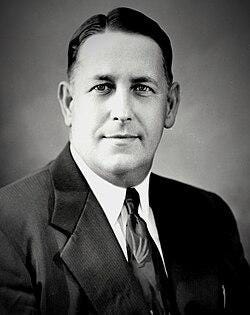
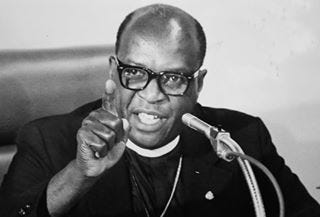
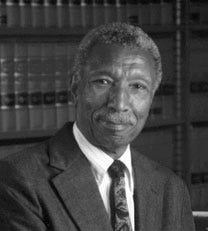

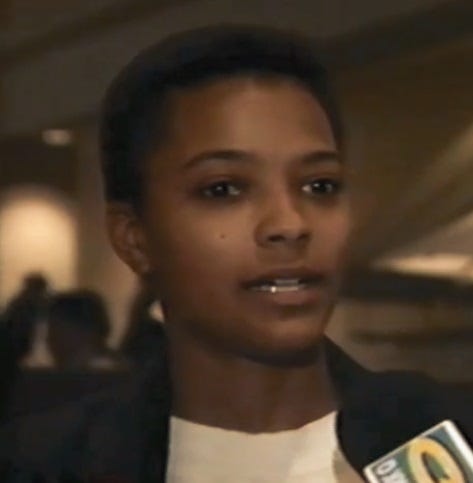

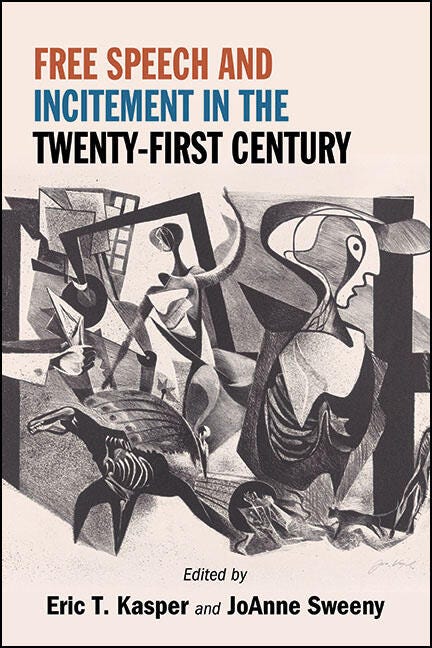
It's interesting how much depends on dedicated historiaans like Fieseler; what if the historical data remained corrupted or inaccessible, leaving us with a false narrative where such profound human rights abuses were never properly processed or understood?